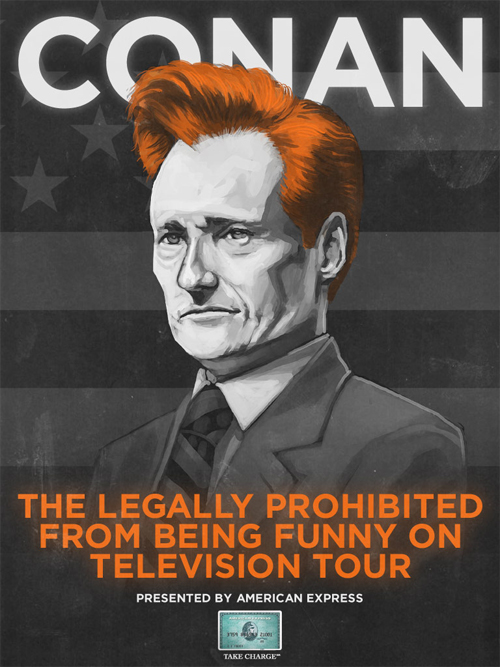Tons of stuff happening over the weekend. Early April is never boring. On with the bag...
The Masters: Last week I was predicting (not on this site, just take my word for it) that Tiger would have a Fuck You tournament. Pissed at the world and the media for delving into his personal business, I figured he'd just stomp the floor with everyone in a Jordan-esque onslaught of awesome. Would-a, Could-a, Should-a; the rust proved too great for him. (Emblematic of his slight off-nes was his disastrous short 3-putt on Sunday.) When trying to hold onto some semblence of competition with the leaders, he just couldn't maintain the focus and hit the shots when needed. Sprinkled in amongst his 4 days of golf was a masterpiece; he just couldn't figure out how to fit the pieces together. Seriously, if you figure he was maybe playing at 75% ability (which I think is generous), imagine what he would've shot had he been on his game; -20? Think about it.

("Woof, after this long weekend I'm really gonna need some time with my stripper....
family, I mean family. Yep, that's what I meant." From: Tigerwoods.com)
I wanted to care about Phil winning, I really did. It certainly does make for a nice story (his wife having cancer, and all), and he's a nice guy who I'm happy to see win. But the story was, and should've been, Tiger's return to golf. I'll just have to be content with "Lefty" winning his 3rd Green Jacket. Not too bad for a guy previously known as "the best golfer never to win a major." (This was a contrived media phenomenon from earlier this decade, essentially created to give them something to ask Phil at boring tour stops while they waited for something interesting to happen. Phil should'a slapped the asshole who came up with that in the face.)

(Much like Chuck Norris, Phil's tears of joy can cure cancer. Boy, was she lucky she married that guy! From: ESPN)
On a personal note, I love the Masters. It's got a lot to do with the fact that it's always around my birthday, but it's the only golf tournament that can hold my attention. Lack of commercials, a perfect course, and a stellar field; the Masters has it all. If all golf could be like Masters weekend, maybe I'd be able to get into it on a more consistent basis. Oh well, back to not caring for the next 360 days.
Jeff Bzdelik leaving CU for Wake Forest: I'm going to have a more comprehensive post on this tomorrow (When he actually accepts the job), but, in the mean time, I'll jot down my quick thoughts. This is a good move for Jeff, and I wish him well. His daughter goes to school there (and she's had some health issues), he wants to retire there, and he's familiar with the athletic director (Jeff and Bohn have had a rocky relationship here). I have feel no ill will towards Jeff over this move, and, as long as Steve McCalin is the next head coach, CU is in good shape and good hands.

("Peace, I'm outta here." From: The BDC)
Spring Game: Yep, didn't go. Don't hate, I'd just rather not notice the football program until the fall; it'll just give me a hernia if I think about it too much. From all accounts the team looked good (Defensive line aside). Offensive wrinkles added some spice to the festivities, and many of the young players (Quentin Hildreth, Nick Hirschman, Parker Orms, etc.) flashed some playing potential. Fall-ball starts in August. I'd really rather not to have to think about the team till then, thank you very much.
You may run like Mays, but you hit like shit: After the first week of baseball, I think I have a pretty good handle on the '10 Sox. The starter will go 7 innings, probably giving up 3 runs or less each time. The bullpen might even hold the opponent down the rest of the way (which, considering the last few years, is a damn miracle.) But it won't matter cause the offense can't do shit. Every game this year will be close, and I've put a cardiologist on call.
If it wasn't for the Cubs, my Sox would be the
worst hitting team in baseball (.203 to .197, and 3rd to last in RBI's.) Yes, it's only a week, but I'm sick and tired of the "it's cold in April" excuse. These are games against AL Central opponents! Both teams are playing in the same stadium! You're professionals, damnit! At least they're walking, and strikeouts are down. But, if all you can muster is a weak pop-fly to center field, it's not much of an improvement. Greg Walker needs to be fired. 5 years of this shit is enough.

(Here's Paulie, straining with the weight of the entire team's offense on his shoulders. From: The Trib)
Hawks stumble with opportunity to clinch Home Ice:
With home ice throughout the Western Conference Playoffs on the line, the Blackhawks choked in overtime against the hated RedWings. Even more important, a win would've set up a series with the Avalanche and guaranteed me the ability to see my 'Hawks in the playoffs (for a lot less than if I was still living in Chicago. Oh well, I still like the 'Hawks chances to make the Stanley Cup Finals, and Nashville is probably the easier of the 2 opponents (the 'lanche are young and hungry). Goalie Antti Niemi
says he's "almost as ready as I can be," (Almost?) and shouldn't be held up by the OT goal last night. Here's to the 'Hawks, and good luck!

(Thanks a lot dude. I coulda gotten to see my 'Hawks in the playoffs. Good luck this week, though. From: The Trib)
The Bulls chaotically inch towards the playoffs: Despite the
recent turmoil surrounding Joakim Noah's playing time, the Bulls have somehow pulled themselves into the 8th playoff spot with their win over Toronto last night. Two games to go, and this chaotic season might have a payoff (albeit a short one, since they'll most certainly be bounced out of the 1st round). Vinny Del Negro may be the worst coach in basketball (Watch the Celtics series from last year. Just awful), and he may have no control of his team, but, assuming the Bulls pull it together and make the playoffs, he will have coached 2 straight playoff teams (not without desperately trying to keep them from making the playoffs.) That and 5 bucks will get you a hamburger. Just saying, I'll do his job for $50 grand (and I'll have just as good a chance of succeeding as he does).
Happy Monday!

















